Contributors
Bonnie Brown: Q&A with Ole Miss Retiree Dr. Mickey Smith
Mickey Smith has not slowed down since retirement. He continues to write and even has a new book coming out later this year. He is a voracious reader and prolific writer, so always has a book or pen in hand.
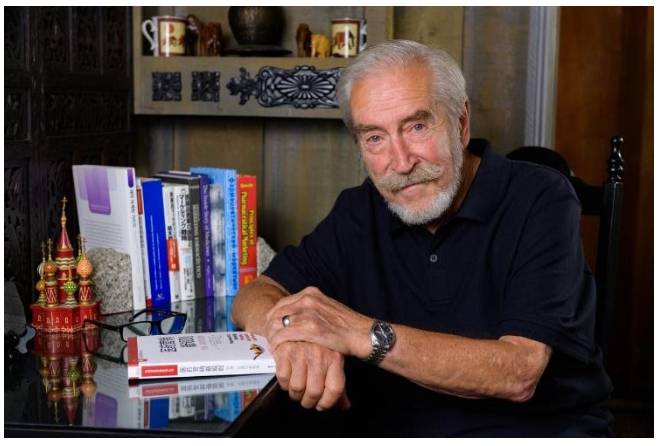
*Editor’s Note: The latest interview in the Ole Miss Retirees features is Dr. Mickey Smith. The organization’s mission is to enable all of the university’s faculty and staff retirees to maintain and promote a close association with the university. It is the goal of the Ole Miss Faculty/Staff Retirees Association to maintain communication by providing opportunities to attend and participate in events and presentations.

Mickey Smith has not slowed down since retirement. He continues to write and even has a new book coming out later this year. He is a voracious reader and prolific writer, so always has a book or pen in hand.
Brown: Tell us about the town/city where you grew up. What is a special memory of that community?
Smith: Jefferson City (“Jeff City”) was a town of about 25,000 when I was there. Even though it was the state capitol, the atmosphere was small-town and essentially rural. No one paid much attention to what went on in our very stately capitol building. It was the market center for the surrounding area, but the real “happenings” went on in St. Louis and, to a lesser extent, Kansas City,
The town was essentially segregated. No big deal about that—it was just the way. Lincoln University was located there. Today we would call it a “Historically Black Institution.” It is now a part of the Missouri system. Movie theatres had segregated seating. Not that there was rampant racism. That was just how it was. One young Black student spent one semester in our grammar school. His father was a professor at Lincoln. Our school was Catholic. To this day, I have no idea about the race situation in the public schools.
Generally speaking, Jeff City was a quiet, pleasant town on the banks of the Missouri River. The population was heavily German ancestry. A large segment was Catholic. And there was a significant Lutheran group.
All things considered, it was a good place to grow up—safe, quiet, and peaceful. All the pharmacies were of the “corner drug store” type. Jeff City was, during my time, in a word (which I had to look up)—bucolic.
Brown: Please talk about your childhood. What is a favorite childhood memory?
Smith: I’ll start near the beginning. The Japanese bombed Pearl Harbor two days before my third birthday. Within a matter of weeks, my father came home to me (I was with a sitter) to tell me he had joined the Army Air Corps. (That’s what it was called then). Clearly, this would require some changes. My mother and I moved in with her parents and her two teenage sisters. For the duration of the war—you remember the war? It was in all the papers—I was very much in the control of those two girls. I learned all the WWII songs, walked to the movies (16 blocks each way). I cried so much during Arsenic and Old Lace, they had to take me out.
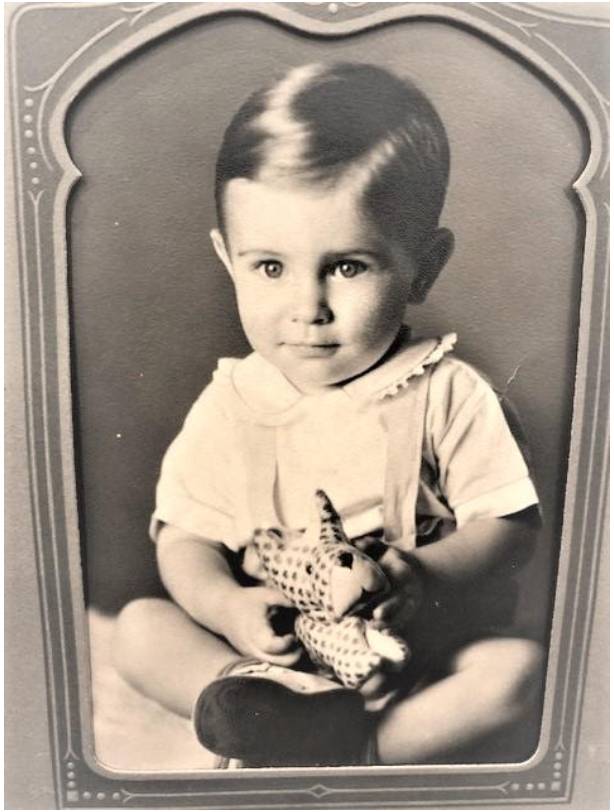
The war years were both vivid and somehow indistinct. The war overshadowed everything of course. My father had gone to Gunnery School in Biloxi but burst both eardrums and then became a mechanic. After tours in Nebraska and Texas, he shipped out to the South Pacific island of Tinian where he was a mechanic on the Enola Gay. We didn’t learn about this until years later. Apart from the war years, my childhood was uneventful. I was allowed to enter first grade early. I was supposed to be 6 by September. Unbeknownst to me, the same thing happened to little Mary Kay Hopkins in Troy, Missouri. But for that, my wife and I would have never met.
No need to give you a day-by-day. Early on, I was terrified of the nuns, but I was very smart and cute as could be, so I got on well. If I heard the words “teacher’s pet” once, I heard it a thousand times. So what? I had a good thing going! Among many great memories, I suppose the best is the annual trip to see a Cardinal’s baseball game and go to the zoo.
I might mention another thing—my name. I hated the name “Mickey.” I was variously Mickey Mouse, or, in those days Mickey Rooney. What was my father thinking? He had named me for Mickey Cochran, a major league catcher and he wasn’t even a Cardinal! Only many years later did I realize it kept me from being just another Smith. My poor wife, however, was stuck with the generic Mary Smith. No worries! She found many ways to distinguish herself.
Brown: Please tell us about your parents and grandparents.
Smith: The first term that comes to mind regarding my parents is hard-working—both of them. My mother had a full-time job as an administrative assistant to the State Purchasing Agent until she retired at age 65. Her father forced her to quit school as soon as she turned 16 so she never finished high school. She was plenty smart; however, as a devout Catholic, she took her religion very seriously. It was not unusual for her to help my dad on the farm clearing brush, herding cows. She was very protective of me as a child. Well, maybe “protective” isn’t the right word. Many is the time I heard somebody say (about me) “That kid is spoiled rotten!”
My dad was also a hard worker although he never seemed to stay in one job very long. He drove a laundry truck, a beer truck, did fieldwork for the electric company. What he really wanted to do was farm. He bought a house and 15 acres using the GI Bill right after the war but lost it to the bank. It was various jobs then until my freshman year in high school when we moved to 100 acres with a barely habitable house. But he could and did do just about everything. We had an outside toilet for the first year, but he sank a well and did all the plumbing himself. Never had a telephone.
They sold the farm just before my senior year in high school, moved to town, bought a two-story house. Pop remodeled the second floor into an apartment with the rent to pay my college tuition.
In my senior year in college, they moved to yet another 100 acres outside of town but good news! Jeff City moved with them until they could see a shopping center from their front porch! Selling that land (now quite valuable) for a final move back to town brought the financial security for which they had worked all their lives.
My maternal grandparents were very much a part of my life. As I mentioned, my mother and I lived with them during the war and I spent many, many nights there over the years when it was inconvenient to go back and forth from the farm du jour. Grandma Abel was a sweet, simple lady given to using German expressions such as Och, du lieber. She was good to me.
Grandpa Abel could only be described as taciturn. He had sold a small grocery store and “retired” in his forties. His time was spent on an enormous garden, on the front porch swing smoking and throwing the butts into the yard, to Grandma’s chagrin. At one point, he painted his ancient Chevy with a brush by hand! He had the distinction of giving me the only spanking I ever got.
I never saw or heard any expression of affection between the two but there must have been some time. They had six kids! Only recently did I realize their Christmas names—Mary and Joseph.
My paternal grandmother, Franky (for Frances) Davis was twice widowed. Her first husband fell to his death in an elevator shaft when my father was 12. She lived in a spotlessly clean little house with a few acres in Columbia, Missouri. For many of those years, she kept her blind father in a back room and cared for him. I can best describe Grandma Franky as a “tough old bird.” She was never unkind, nor was she overly affectionate. Her four boys and one girl were always deferential, even though the “boys” (my father included) were, to a man, “smart asses.” I’ve heard that applied to me. I learned from the masters!
Brown: Where did you go to school?
Smith: I was enrolled in a public kindergarten at age 5. After a week, I refused to return. Nothing for my mother to do (Pop was away fighting the Yellow Peril) but go see Mother Superior (what kind of title is that?). Somehow, she convinced her to allow my early entry into (get this)—Immaculate Conception School! Yeah, really, that was the name. People in Jeff City referred to it as “IC.” No wonder. For eight years, I excelled in class and in being short. Then it was across town to St. Peter High School and the dreaded Christian Brothers.
St. Pete’s, as we called it, was segregated! The girls, in uniform, were taught by the Sisters of Something or Another and occupied the top floor. And we guys, wearing ties and no jeans allowed, were on the ground floor. There was, upstairs over the gym, a sort of soda fountain place named The Haven. Should have been called Heaven! You could actually talk to girls there. Of course, I was too shy to do that. Instead, I honed my ping pong skills. But I could look!
We got a great education. Christian Brothers were tough but very good. When I got to college, freshman chemistry and physics were essentially just a review.
I missed being valedictorian because of a “B” in trigonometry. And it was an elective! My full-time nemesis, Louie Rephlo had all A’s. As soon as we graduated, they changed the name of the school. Draw your own conclusions.
Finally, a word about my athletic career. As an official scorekeeper for basketball and statistician for football, I traveled with both teams and received a letter in my senior year.
Brown: What were the activities that you enjoyed as a child?
Smith: Pretty much “Leave it to Beaver” stuff. Games with other kids, baseball, hide and seek, collecting stuff. One time an older kid and I followed a nearby creek all the way to the Missouri River. I was staying with my grandma at the time. Of course, I didn’t tell her. We played a lot of cowboys and Indians. One time I insisted that my mother dig a fox hole in the yard so I could play soldier. It was snowing at the time. Told you I was spoiled.
Brown: How did you respond when asked as a child what you wanted to be when you grew up?
Smith: I guess I don’t remember. My ideas were rather vague. Don’t suppose I was really interested in growing up. Too much work! For a time, my father hoped someday to get me into West Point. I was never very enthusiastic, especially after seeing a contemporary movie, The Long Grey Line.
Brown: What world events, if any, were significant to you growing up?
Smith: Well, of course, there was that business with the Nazis and the Japanese. There was rationing of all kinds of things with candy being a real bummer. There was a grocery store half a block from the grammar school (IC) and when they got a box of bubble gum, we had to line up outside for one piece per person. Of course, if you were careful to care for it at night, that piece might last 2-3 days.
Korea was BIG. At the time of the bomb on Hiroshima, I was too young to understand. But when the North Koreans invaded South Korea in 1950 (with the help of the Chinese), there was a genuine concern about a nuclear third world war. We had drills in the schools and people were building bomb shelters. For we guys, there was the real threat of being drafted to fight if the fight dragged on. Fortunately for me, there was a ceasefire before I graduated high school in 1956. I find it very troubling that 70 years later that has not been resolved. I just read a new book, The General and the President, about, respectively, MacArthur and Truman during that time. It brought back many of the real concerns of the time. I was already “grown-up” by the time of Vietnam. Certainly, the A-bomb was a momentous thing, but I was too young to know. I figured John Wayne or Roy Rogers could handle it.
Brown: What was your very first job? What were your responsibilities and what was your pay?
Smith: First job? Third or fourth grade. We lived on the farm and my parents worked in town. What to do with little Mickey? My Uncle Charlie (or my Chicken Sh- – Uncle Charlie, as he was known in the family, sorry if I offend), had a roadside gas station/quick stop and I was hired on, 8 to 6 at 50 cents a day plus a baloney sandwich. I kept the soda cooler filled and “candled” the eggs (never did know what I was looking for). Occasionally, I was called on to look after my much younger cousin. He was truly incorrigible, and I came to hate him. But I survived the summer.
More important in my employment history was my early career in journalism. For five years beginning in sixth grade, I sold the Post Tribune newspaper. The paper sold for a nickel of which I kept 2 cents. I got 100 papers daily and either sold them all or waited until 5 p.m. to check-in back at the office. We newsboys had prescribed territories. Mine included the State Office Building where my mother worked and the Supreme Court. Sometimes when I had made my rounds, I still had papers left. There were two “fallbacks.” Hit a few bars hoping to find a drunk who would buy the remainder from the “poor little paperboy” or, more usually, go to the pool hall and practice my pinball expertise.
A highlight of my experience was one of my regular customers who presented me with a baseball autographed by the entire Cardinal team. I have it still.
Brown: Talk about your high school experience.
Smith: Well, I’ve already talked some about high school. I was apprehensive at the end of 8th grade. We were going to have to meld with a considerably larger group of boys who had already spent 8 years at St. Peter’s. They were assumed to be more sophisticated than we because most of them lived on the west side of town where most of the money was. Plus, there was the looming threat of the Christian Brothers. These were men, and they wore long robes. I had had eight years as the teacher’s pet with the (mostly) sweet nuns.
Things worked out okay. I was elected class president each of the first three years. In my senior year, after some baseless charges of Russian collusion, I was demoted to Secretary (pretty sure Adam Schiff had something to do with that). I made a feeble attempt at joining the band but living on a farm, selling papers, and being assigned a tuba put a quick end to that.
I didn’t date much partly because of farm life. Also, when a lot of the kids were heading down to the “malt shop,” I was going to pick up my papers. That all changed when we moved to town and I got my driver’s license. A small group of us also made a practice of going to country dances (usually weddings) were age limits on beer drinking were mostly just a suggestion.
My senior year was the best year of my life—up to then. I was known as “Smitty” throughout high school.
Brown: What or who got you interested in pharmacy?
Smith: Actually, my father did. I was lucky enough to be a National Merit Scholarship Finalist and I started getting feelers from fairly prestigious schools. When I started talking about majoring in English, Pop brought me back to earth in a hurry. His words were something like “Look, boy, you need to go to pharmacy school like your Uncle Bill. You’ll make a decent living and you’ll always have a job.” (The Depression and his life experience were talking.)
The summer before my senior year, I took a job after school and evenings at East End Drugs. The owner, “Red” Whaley, was genial, a minor city notable, and good to work for. His wife, who best be described as a shrew, hen-pecked him and annoyed me, but she wasn’t there much. My experience was limited to soda jerking, stocking shelves, and cleaning. I did make a better than average ice cream soda. The store was within walking distance of the public high school, so I got plenty of practice. I really never got any insight into the prescription area. I did find out that one of the downtown pharmacists was Secretary of the State Board of Pharmacy. I made myself known to him and he generously gave me $100 toward college. He still held that position when we had our State Board exam which included a practical component where we had to compound prescriptions in the college lab. I can’t say I was “called” to pharmacy, but time and events have made it a central part of my life.
Brown: What was college life like for you?
Smith: Life at the St. Louis College of Pharmacy (STLCOP) was very different in my day than today. I am overwhelmed at what I see on my alma mater’s home page. In my day, STLCOP was a single four-story building. Today there is a twelve-acre campus with a gym, weight room, and basketball court. During my tenure there things were pretty much strictly business. We had quite a number of Korean vets. Most of the students worked part-time in drug stores around the St. Louis area.
I found a job in a pharmacy around the corner from where my uncle had worked during his college days. I never had a car, so I took the bus—day or night, rain or shine. I shared a room and bath in the home of a little widow lady. My uncle had roomed there too and that’s where I got her name. It was a short walk to the College and to the bus.
Pharmacy was a four-year program then. I believe it changed to five years with the next class. You got to know the faculty pretty well since everybody was in the same building all day. The Dean taught organic chemistry, often sitting on a lab bench. He was a familiar figure at the El Rancho Buffet, the pharmacy pub down the street. The medical students from Washington University favored the Martinique, so you know where the student nurses went!
Surprisingly, Kappa Psi had a house. It was home to regular “mixers.” My father had forbidden me to join, partly because of the money but also due to his bad impression of “frat boys” while growing up in Missouri U’s hometown. My presence was tolerated even though not a member because I often tutored some of the members. I also organized a service organization—the Triangle Club—for those who wished to have affiliation but weren’t in Kappa Psi.
Things went well for me from the outset. All A’s the first three semesters. I wouldn’t sustain that, but I never got a C. I was elected president of the freshman class and twice vice president of the student body. Seating in class was alphabetical so I got to know the “S’s” better. For some reason, I got on best with the veterans. My first roommate had just left the Navy. He was gone weekends visiting his girl in Illinois. We didn’t see a lot of one another, but I learned a number of new Navy terms.
Money was a constant worry as was transportation. I had to scrounge for both. In fact, one of my classmates, also ex-Navy, started calling me that. We’re still in touch and he still calls me “Scrounge.”
There were two nuns in class. One was a timid soul but the other, Sister Degenhart, was very much “with it.” Our senior year we entered an essay contest together and won $250. I used my half to buy Mary’s engagement ring. Isn’t that romantic? Sister kept her half. What about that vow of poverty?
My pharmacy management professor, the late Jerry Henney, was the person who encouraged me to further study. He organized a master’s program at the College. Four of us took it and it was never offered again. That was a rough year! I was working 48 hours a week besides the course work and Mary had delivered our daughter some six weeks prematurely. We survived!
Brown: How did you and your late wife Mary meet?
Smith: Great story. A blind date. The only one I ever had. The instigator was a nurse who worked with Mary. Her husband was a classmate of mine. I saw it as a free meal, nothing more. No love at first sight, the conversations were pleasant, but not remarkable. There was another couple, also a classmate of mine and a nurse. After dinner, the “girls” went into the kitchen to make fudge but really to assess how it was going. The guys talked about the Cardinal baseball season.
By this time, my boss was letting me use the delivery car occasionally on weekends, so I took Mary home after dinner. On the way, I mentioned that I was looking for a new apartment (I moved 8 times while in school). She had a friend who might know of one and we exchanged phone numbers. She was bright, intelligent on the phone, so the next time I had the car, I asked her out. That was October. We announced our engagement at a New Year’s Eve dance.
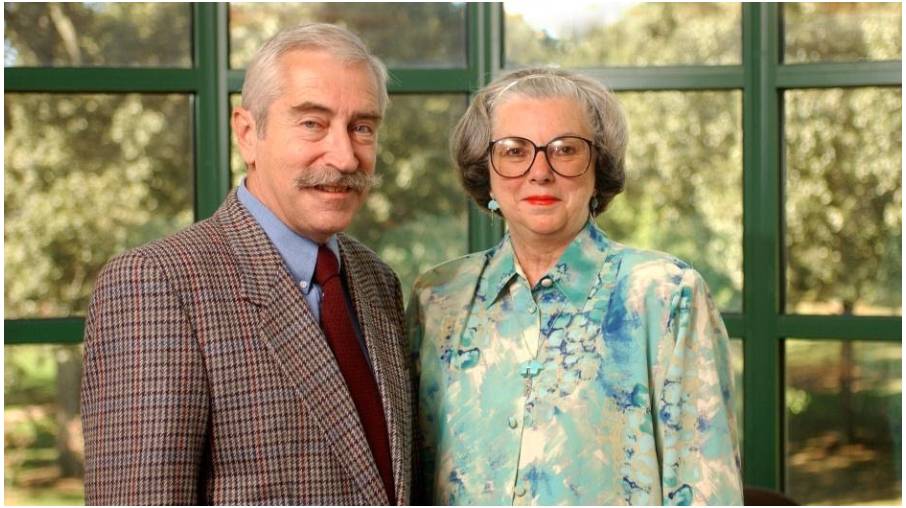
Brown: Tell us how/when your Ole Miss “story” began? Why did you choose to come to Ole Miss?
Smith: I knew I wanted to get the doctorate. I had been offered an assistantship at Ohio State, but the money would be inadequate. But one day I saw a flyer from Ole Miss on the bulletin board at the College. I called and talked directly to Dean Hartman. Turned out that he would be coming through St. Louis on a trip with the senior class.
My late friend, Patrick Tharp, and I met the train in Union Station. The three of us went to the bar where Hartman bought the beer. By the time he had to get back on the train, I was “hooked.” He had created a wonderful and finally reachable future. That’s what he always did best.
Mary and I made a quick trip to Oxford to assess the situation. She wasn’t thrilled but agreed to try it. She gave me two years to finish.
Brown: Who hired you? What was the interview process like? How long did you work at Ole Miss?
Smith: After finishing the Ph.D. (in the required two years!), we were in New Jersey. Hartman kept in touch. He was in New York City on business twice and we met up both times. There was no interview as such. He had been my major professor after all. We knew each other.
A few weeks after I accepted his offer and we were preparing for the move, we learned that James Meredith had been shot during a march down Highway 51. We were devastated. We had suffered through the integration crisis in 1962 and wanted no more of that. But we had committed, and I had given notice to Pharmacia. We were coming back to Oxford. That was 1966. I retired 37 years later in 2003.
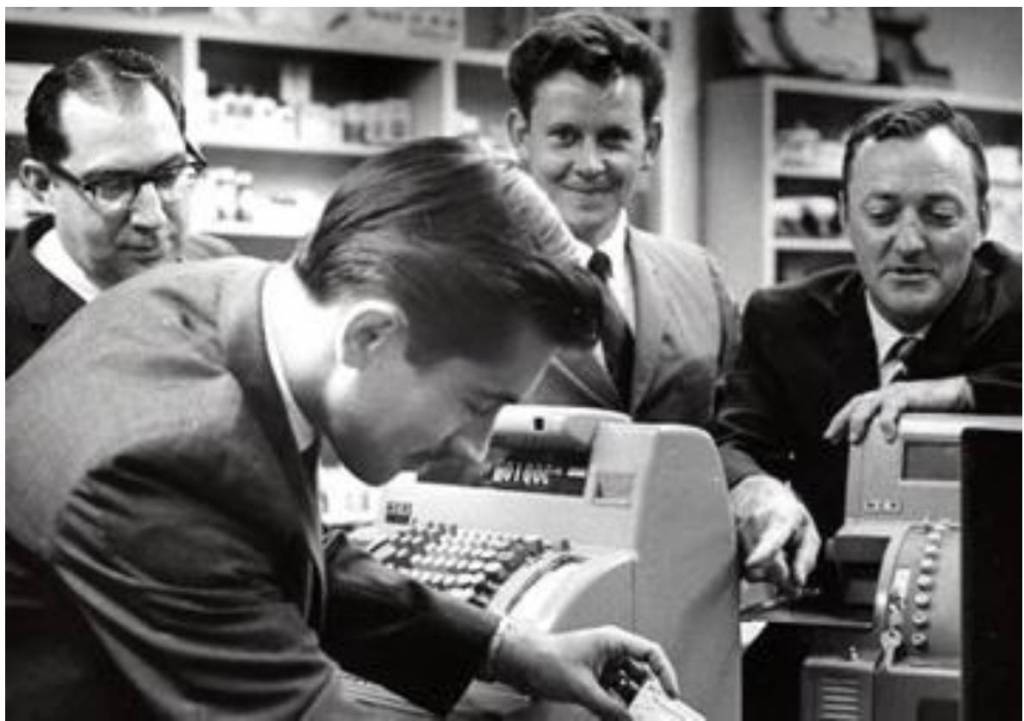
Brown: What did you know about Ole Miss before you accepted a position here?
Smith: I knew virtually nothing about Ole Miss before I started the doctoral program. By the time I agreed to take the job, I knew plenty. Somehow, I believed that Hartman could take a second-rate school and make it into something special. Of course, he did!
Brown: After receiving your Ph.D., you left Ole Miss for a job elsewhere. Tell us about that experience.
Smith: I took a job with Pharmacia which had established a small presence in the U.S. It was a Swedish firm and I don’t think they understood how unqualified I was for the job of Marketing Manager. I had had a couple of other interviews but liked the idea of the smallness. The man who hired me had visited STLCOP when I was in the master’s program. So we had met. I used my two years there to learn, make industry contacts, and absorb everything I could. I made frequent trips to New York City to an advertising agency and then there were trips to Sweden, England, and Denmark. Big stuff for a small-town boy.
The second-year on the job I was enjoying a good reputation in the company. I got a call from George Kedersha, a professor I knew at Rutgers. He wanted me to teach a class in pharmaceutical marketing. Surprisingly, my bosses agreed to my driving to Newark one morning a week to teach. (The Swedes felt there was some prestige in this).
Finding no textbook, I immediately set about organizing my lecture notes into a manuscript, published three years later as my first book, Principles of Pharmaceutical Marketing, which has had four editions.
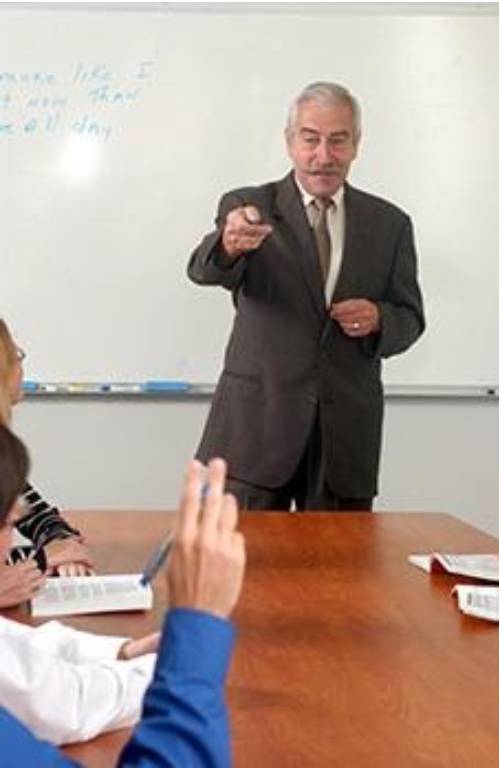
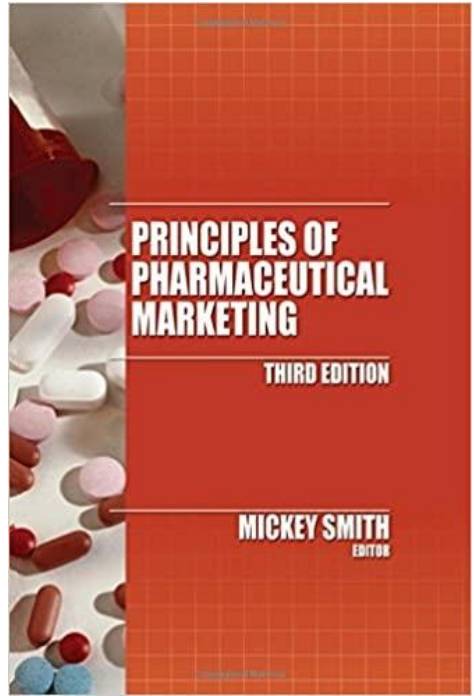
The experience at Rutgers convinced me that my place was in the classroom. Mary had had enough of being home with two young kids while I traveled. I didn’t blame her.
Pharmacia, which later merged with Upjohn and then with Pfizer, was very generous about my leaving and years later I was able to take the whole family to Uppsala (in Sweden) for a visit.
Meanwhile, Hartman, by means known only to him, had turned a nine-month appointment into twelve months for me. And a 30 percent increase in pay. What a guy!
Brown: You and Mary traveled extensively. Tell us about that. What was your favorite destination and why was it your favorite?
Smith: Indeed we did. By actual count, we visited 100 countries. Much of that was done on cruises. We had more than two dozen of those. All 50 states too.
Some of our travel was on business. I was happy to be able to take Mary with me to give invited lectures in Tokyo, Beijing, England, Wales, Puerto Rico, and Australia. The whole family went together to Maui and to Montreal, Paris, and Geneva. We also lived six months in England during my first sabbatical and traveled from there extensively in the British Isles and western Europe.
Hard to pick a favorite because each destination has something going for it. We have driven all over Ireland on five different visits. Norway is beautiful and Mary especially loved China on our three visits there. I should add that the southwestern United States can’t be beat for beauty.
I should mention a couple of not-so-good travel stories. We were in the Orkney Islands (Scotland) near some ruins when a lady came to us, confirmed that we were Americans and took us to her cottage. On the TV they were running pictures of the Twin Towers disaster. And we were 3,000 miles from home. We called friends in England to be sure of a place to stay if we couldn’t get home. Eventually we did.
We were stopped in Northern Ireland by soldiers with machine guns looking for an escaped murderer. Rather tense, but Mary started talking genealogy and things were fine. Finally, we were stuck mid-Atlantic, dead engine, and 40-foot waves. Scary!
Brown: You are a prolific writer. How many books/journal articles have you written? How many were about your profession and how many about other interests?
Smith: This is where I need to quote a famous Mississippian and Cardinal star, Dizzy Dean, who once said: “If you done it, it ain’t braggin’.” So, I ain’t braggin’ but I can claim 26 books counting multiple editions, with translations into Japanese, Chinese, Korean, Spanish, and Russian. My publications number more than 400 papers in 100 different journals. I also founded three peer-reviewed journals. That’s a lot of paper and ink, so I need to do what the Wall Street Journal calls “humble braggin’.”
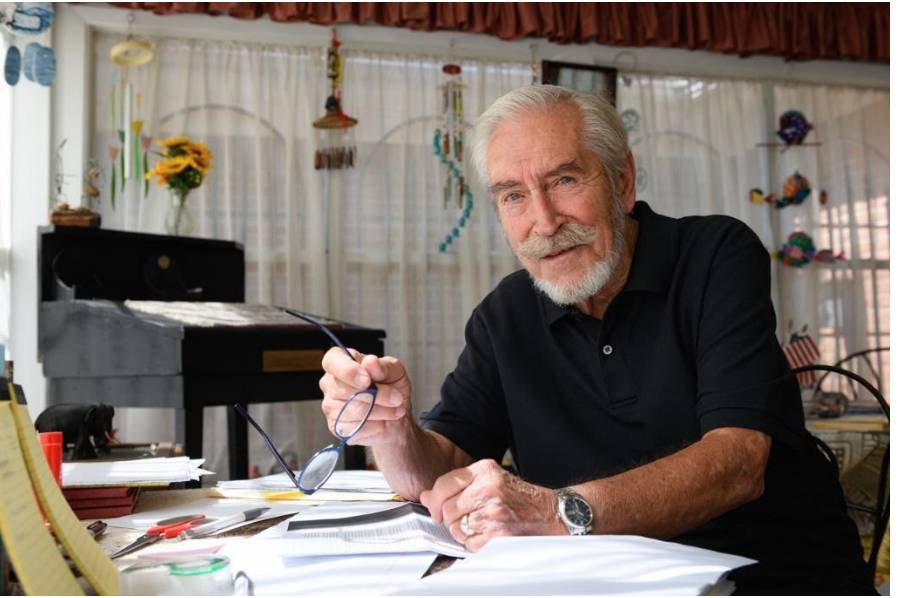
The fact is I can’t begin to count the number of co-authors and contributors. Students, colleagues even Mary have their names on most of these publications. For some of the books, I was the editor—gathering authors to make a book. Why did I do all this? You didn’t ask, but I’ll tell you anyway. I have always been excited by new ideas or old ideas stated in new ways. Moreover, I was always driven to share my excitement in the classroom or in print.
All of my books had some pharmacy angle. Even How Fibber McGee and Molly Won World War II had a chapter on Kremer’s Drug Store. I consider my best to be Small Comfort which is a history of Valium and other minor tranquilizers.
My colleague Dewey Garner has been quoted as saying “Mickey has never had an unpublished thought.” Don’t know if that was meant to be a compliment.
Brown: One of your books was about the late Dean Charles Hartman who died in an automobile-train collision accident. What impact or influence did he have on your career and life?
Smith: Yes, in Hello, I’m Charlie Hartman I gathered comments and memories of many people whose lives he touched. As you have already heard, but for him my career as it has been, would never have happened. He had indomitable and infectious optimism. He took on a heck of a challenge when he came to Ole Miss. He didn’t seem to know the meaning of “quit.” Yes, in his too-short time at Ole Miss, he changed my life and attitude.
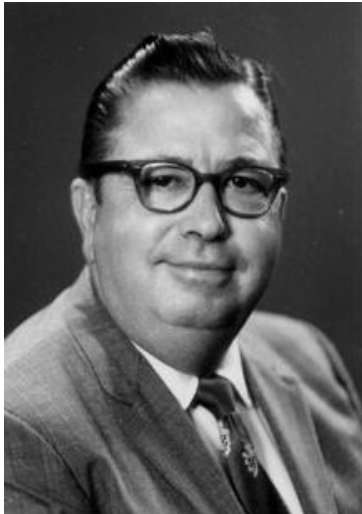
This year is the 50th anniversary of his death which I remember like it was yesterday. I believe strongly that it is past time for his name to appear next to Faser on the building that Hartman personally made happen. (Are you listening, Chancellor?)
Brown: I know you have written a new book. Tell us about that. When will it be available?
Smith: Before I tell you about the book, I must acknowledge Shelia Goolsby. She had processed draft after draft of this 800-page monster and is still doing it. I could (and should) go on and on but it is literally true that this book could not have happened without Shelia.
Add to my lucky breaks the name of Jen Blakely, Administrative Assistant in the Department of Pharmacy Administration. Jen has handled all transactions regarding copyright and trademarks and helped in negotiations for the Chinese translation of another of my books. Couldn’t make it without these two lovely ladies!
Now, to the book. The title is Government, Big Pharma and the People—A Century of Dis-ease. It’s primarily history and my most ambitious book. It runs 500-plus typed pages with more than 500 references. My first draft was over 800 pages, but the publisher put a foot down, so I had to do an appendectomy removing four appendices, two chapters, and some other material.
As we’re talking, it’s at the publisher before a back and forth of 3-4 months. Features are some history of Federal investigations of the drug industry as well as the industry’s response. Considerable attention is given to people’s drug-taking behavior. There are two excellent contributed chapters. One on Over-the-Counter (OTC) drugs, written by Steve Pray who has a book on the subject. A chapter on drug prices is the work of “Mick” Kolassa who has two books on the subject and is an acknowledged expert.
It will make a great Christmas present and will be out just in time for the season. (That’s a hint).
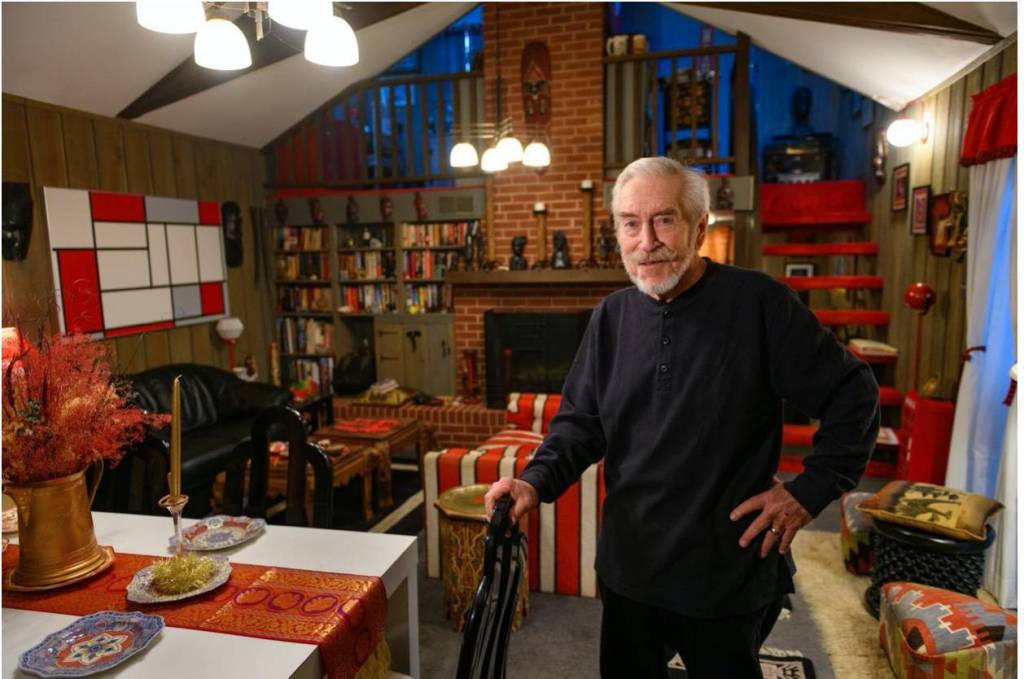
Brown: You have a “trademark” mustache. When did the mustache come into being? Have you ever shaved it?
Smith: I grew the Mustache shortly after taking the faculty position at Ole Miss. A couple of years later I shaved it before a trip to D.C. to try to get some Federal money for our program because I was afraid I might not be taken seriously. I promptly grew it back. Many years later because of a little skin condition, I briefly shaved it again. Oddly enough we shortly joined our friends for some ballroom dancing. After a couple of hours, Mary asked them if they noticed anything. They hadn’t!! I guess they just assumed a mustache. After that it was there to stay. I’ve noticed in the last few years that it has changed colors. Where did that gray come from!?
Brown: What’s the career highlight you’re most proud of?
Smith: Well, I’ve been very lucky. I have to choose the honorary doctorate from my alma mater, St. Louis College of Pharmacy. It’s one of only two ever given. A close second would be the accomplishments of more than 70 graduate students whose work I directed.
Brown: What skill would you like to master?
Smith: Hey! I’m almost 82. You want this old dog to learn a new trick?! I am only too aware that I should have at least a few basic computer skills. No! I have what the Wall Street Journal calls “Voluntary Ignorance.” My late friend Marvin Davis called me a Luddite (a person opposed to new technology). I took it as a compliment.
Brown: What is your definition of success?
Smith: I’ll get stuffy here. Back in 1943, Abraham Maslow proposed a hierarchy of human needs with the highest being “self-actualization.” That works for me. All the other traditional measures—money, prestige—may or may not be a part of that.
Among his many hits, Sinatra’s song from his album September of My Years is his song, “Man in the Looking Glass” which delivers two profound last lines. Here they are:
Life is worth living if once in a while,
You can look in the looking glass, and smile.
Brown: What were some of the turning points in your life?
Smith: First and foremost, meeting my wife! The decision to go into teaching was definitely a turning point as well.
Brown: What do you do to relax?
Smith: I read and read and read some more—usually with a little Chopin or Ramsey Lewis for background.
Brown: What makes you roll your eyes every time you see/hear it?
Smith: My eyes are rolling now just thinking about television commercials. Not just that they are so many, but that they are mostly inept. Dogs are everywhere. I haven’t seen a dog in a Depends commercial—yet. And there are so many! I get it that we can’t have TV without commercials. It does bother me that they pay for so much absolute drivel. A whole channel devoted to “ridiculousness!”
It is not generally known that there is an FCC rule about how many commercials can run in a row. What do they do? They have a 15-second spot say “stay tuned for the weather “and then back to ten more commercials.
Oh, and if you walk into a room and the TV is on, 10 to 1 it’s a commercial and if you switch channels trying to catch it off guard, a commercial will be on THAT channel too! Make that a hundred to one. I’ve studied this and hope to publish my findings in the Journal of Irreproducible Results.
Brown: Tell us what makes you smile.
Smith: Good memories! A lot of jokes. Something truly tender on TV. A smile from someone else! A little kid in the grocery cart.
Brown: It is said that we learn something every day. What is something new that you’ve learned recently.
Smith: Learn something almost daily from Google. Like this. I saw a news item telling that a cigarette maker in England was looking for Covid-19 remedy in tobacco. I quickly flashed back to 1958 and our Pharmacognosy class. Dr. Mercer talked interminably about his dissertation on the Tobacco Mosaic Virus. Quick, back to 2020! I googled it and learned that humans have an antibody to the Tobacco Mosaic Virus. Don’t push me too far but I’m pretty sure that my 3-4 cigars a day are protecting me from Covid-19. (I’m planning to write a paper).
Brown: I understand you are passionate about the St. Louis Cardinals. How did that come about?
Smith: Picture it! It’s time for third-grade arithmetic. Sister Mary Cafeteria enters the room carrying a small radio. “No arithmetic today, you little urchins.” It’s the 1946 World Series. Cardinals vs the Boston Red Sox. Stan Musial is playing. So is Terry Moore in center field. Del Rice is behind the plate (He was once described as having speed that was deceptive. “He’s slower than he looks!”) Harry “the Cat” Brecheen on the mound. The Cardinals were more important than arithmetic. Damn! The Cardinals are easy to love. The St. Louis fans attest to that. They just couldn’t support the incredibly inept St. Louis Browns who, I believe, are now Padres. Nuns-Cardinals, get it?
Brown: What’s your biggest day-to-day challenge?
Smith: Keeping busy! I’d be perfectly happy to read all day, but I know that’s not an option. TV’s a disaster. Because of neuropathy and balance problems, I really can’t do much in the yard. TV, as Newton Minow, attorney and former Chair of the Federal Communications Commission, once said, is a “vast wasteland,” only vaster (is that a word?) Working on the book has been great but that will be over soon. Knitting is not an option.
Brown: I know you are an avid reader. Tell us about other hobbies/interests.
Smith: Right about the reading! For many years I collected recordings of old-time radio programs. I still have about 300 cassettes and an extensive collection of books on the subject. I also wrote two books on the subject: Pharmacy and Medicine on the Air and How Fibber Magee and Molly Won World War II. The “Fibber” book got me the only signing I ever had at the best bookstore in the United States–Square Books.
Not really a hobby, but Mary and I enjoyed years of ballroom dancing. When we married, I was hopeless as a dancer. She bought a dance instruction tape. She learned the steps by day and taught me in the evenings. For years, we enjoyed dancing at The Peabody in Memphis and always on cruises. We owned the Foxtrot and Slow Jive!
Brown: Do you have any pet peeves?
Smith: I share with probably every American, the RoboCalls. On two occasions, I have missed important legitimate calls when I prematurely hung up when I wrongly inferred that the first few words sounded like just another one.
In addition, I need to add a blanket condemnation of most consumer packaging. I get that there needs to be “childproof,” but most of them are also “elder proof!”
I’ve already mentioned the hated TV commercials.
Brown: What remains on your bucket list?
Smith: I filled my “bucket” in October 2019 when I took my daughter and her partner to Egypt and Jordan, mainly to see Petra (famous archaeological site in Jordan’s southwestern desert). That had been on my list since I saw it in Indiana Jones and the Last Crusade. The movie only shows snatches of the buildings, but the canyon where all the many structures are is four miles long. I rode a donkey on the return. The trip was everything I could have hoped for. Mary and I talked about seeing Angkor Wat, an enormous Buddhist temple in Cambodia. It was available as a shore excursion on one cruise, but we would have had to fly there and spend the night in a jungle hotel which advised against venturing out at night because of cobras. No thanks!
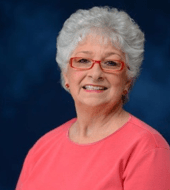
Bonnie Brown is a retired staff member of the University of Mississippi. She most recently served as Mentoring Coordinator for the Ole Miss Women’s Council for Philanthropy. For questions or comments, email her at bbrown@olemiss.edu.
Sign up to receive Hottytoddy.com morning and evening headline emails HERE!
Follow HottyToddy.com on Facebook (If You Love Oxford and Ole Miss…), Instagram, Twitter and Snapchat (@hottytoddynews).










































